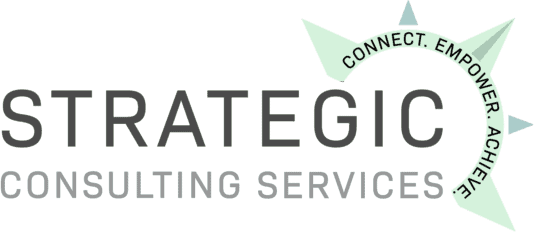Accommodating Pregnancy in the Workplace
In today’s workplace, supporting employees through pregnancy and childbirth is crucial. This assistance ensures their well-being and respects their valuable contribution to the workforce. As we dive into this topic, we’ll explore employers’ legal duties and the profound impact of these accommodations on employees’ health and job satisfaction. It’s not just about following the law; it’s about fostering a caring work environment where every member feels valued, especially during life-changing moments like welcoming a new child.
Understanding Pregnancy-Related Needs in the Workplace
Pregnant employees often navigate several challenges at work, each unique to their situation. Common needs include frequent breaks due to increased physical demands, ergonomic workspace adjustments to reduce discomfort, or modified duties to limit strenuous activity. After childbirth, they may require time for medical appointments or breastfeeding. These requirements aren’t static; they evolve throughout pregnancy and post-delivery, necessitating a flexible approach. Recognizing and adapting to these changes is key to maintaining employees’ well-being and work efficiency. By understanding these diverse and changing needs, employers can create a more inclusive, supportive, and productive workplace environment.
Legal Framework for Pregnancy and Childbirth Accommodations
Employees expecting a child are protected under laws such as the Pregnancy Discrimination Act, which ensures they are treated fairly at work. This act makes it illegal for employers to discriminate based on pregnancy, childbirth, or related conditions. Additionally, the Americans with Disabilities Act requires employers to provide reasonable accommodations for pregnant workers experiencing complications that qualify as disabilities.
Following these laws is not just a matter of legal compliance; it’s a crucial aspect of business ethics. When companies uphold these standards, they promote a fair and equitable workplace. This commitment reflects positively on the company’s reputation, helps in retaining valuable employees, and avoids legal issues that arise from non-compliance. Understanding and adhering to these laws ensures businesses stand for respect and equality.
Types of Accommodations for Pregnancy and Childbirth
Supporting pregnant employees and new mothers is key to a respectful workplace. Companies can offer various adjustments to help these employees feel comfortable and stay productive. For instance, pregnant workers often benefit from modified schedules, allowing them to attend medical appointments or manage fatigue. They might also need ergonomic enhancements in the office, like supportive chairs or standing desks, to maintain comfort as their body changes.
Additionally, allowing more frequent breaks can help manage energy levels and physical strain during pregnancy. After childbirth, new mothers may continue to need support, especially if they choose to breastfeed. Companies can assist by providing a private space (not a restroom) where women can pump breast milk comfortably. This space should be shielded from view, free from intrusion, and readily accessible. These measures don’t just comply with the law; they show a company’s commitment to its employees’ health, well-being, and work-life balance.
Implementing Accommodations
Effective communication is the backbone of implementing pregnancy and childbirth accommodations in the workplace. Employers should proactively inform staff about the available support measures through clear, accessible channels like staff meetings, internal newsletters, or a dedicated section in the employee handbook.
Equally important is establishing a straightforward process for requesting accommodations. Employees should know whom to approach and what documentation is required, if any. This procedure must respect the employee’s privacy while ensuring their needs are met promptly and without hassle.
Lastly, a supportive atmosphere is crucial. Supervisors and HR staff should be trained to handle requests empathetically, ensuring employees feel valued and understood, not inconvenienced. This positive approach underscores the company’s commitment to its team’s well-being, encouraging loyalty and mutual respect.
Balancing Business Operations with Employee Well-being
Balancing business needs with employee well-being is essential for a harmonious workplace. While operational efficiency is crucial, providing reasonable accommodations for pregnancy and childbirth often leads to increased employee satisfaction and loyalty, reducing turnover rates. Employers can meet operational goals by planning for temporary adjustments rather than significant shifts in workflow or staffing. This approach not only maintains productivity but also signals to all employees that their health and personal milestones are valued, fostering a dedicated and positive workforce.
Fostering a Supportive Work Culture
Going beyond mere legal compliance, businesses thrive when they cultivate a culture of genuine support. This involves proactive measures like establishing pregnancy and parental support groups within the company, offering educational seminars on work-life balance, and implementing flexible work policies that consider the diverse needs of expectant and new parents. These initiatives demonstrate a company’s commitment to its employees’ holistic well-being, thereby strengthening the workplace community, enhancing company loyalty, and promoting a positive brand image that extends far beyond the organization itself.
Supporting pregnant employees and new parents is both an ethical duty and a business strength. Companies must lead with empathy and foresight, recognizing that such accommodations are investments in their workforce’s well-being and, ultimately, in their business’s future.
Strategic Consulting is Your Partner in Managing Workplace ADA Issues
Our team is here to help with your disabilities accommodation issues, vocational rehabilitation needs, ergonomic evaluations, and other employee needs.
For twenty years, we have been helping companies in the Pacific Northwest with worker injuries, disabilities, and other vocational challenges. We are here to support you in this unprecedented era of teleworking and WFH.
We have partnered and provided solutions to some of the largest companies in the world (such as Boeing, Microsoft, and Amazon). But, at our core, we are still “people taking care of people,” one project at a time. Our success is built upon and providing you the best solution to your workplace challenge. Contact us today by filling out a form (below), submitting a referral, or visiting our ‘Contact Us‘ page to find your nearest office.
Ric has been working in the industry since 2002, specializing in developing employer jobsite analysis and light duty programs, ergonomics consultations and adjustments, disability accommodations and providing effective return to work solutions. Ric is Matheson trained in Ergonomics and is a Certified Ergonomics Evaluation Specialist. He earned a Bachelor of Arts Degree in Psychology from Western Washington University and later his Master’s Degree, M.Ed., Education Counseling from Seattle Pacific University. Ric is currently a Registered Vocational Rehabilitation Counselor for the Department of Labor and Industries and has been a Certified Disability Manager Specialist since 2006.

